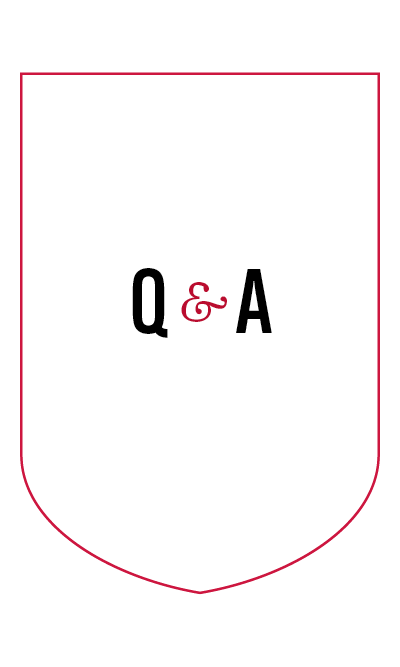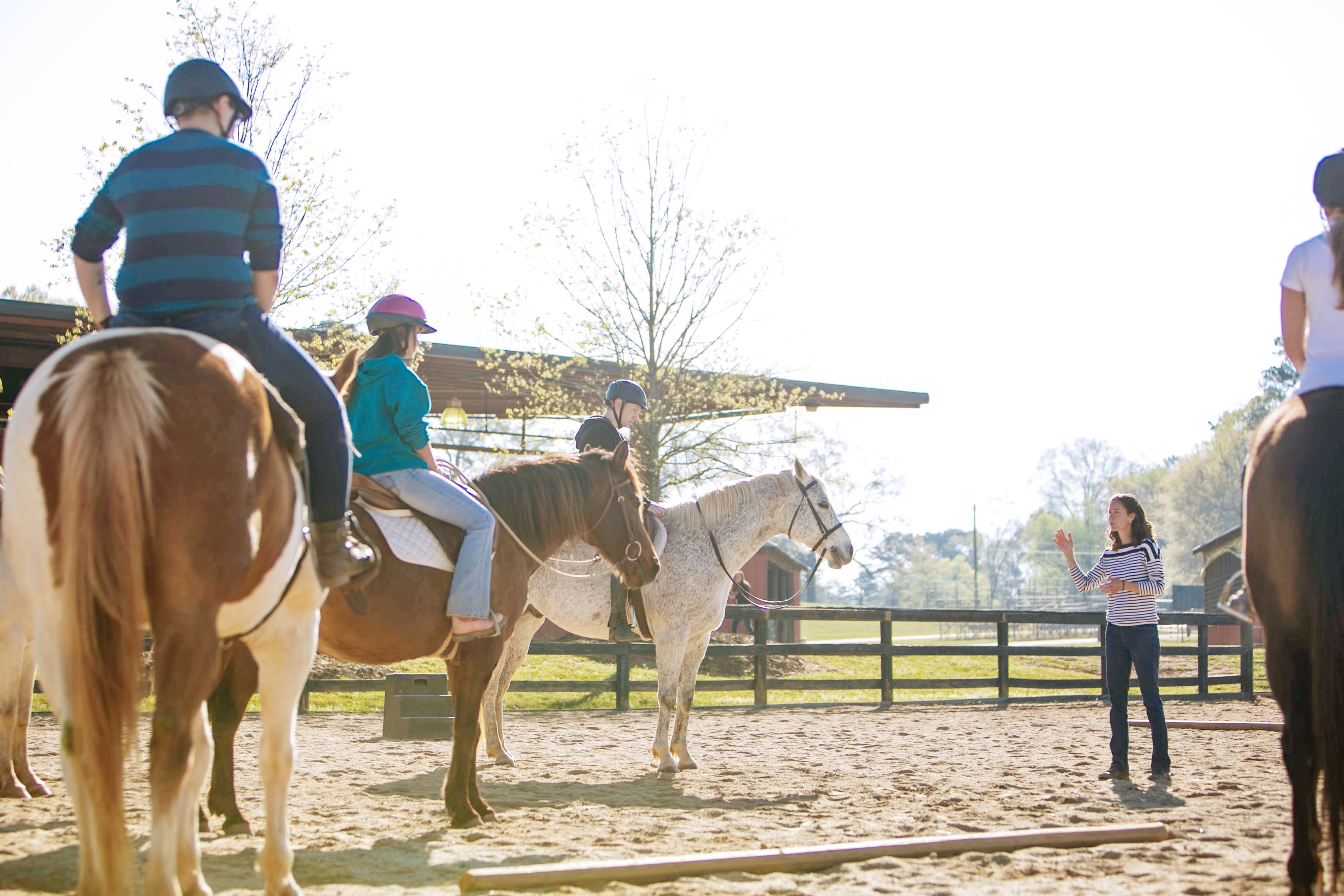Kylee Jo Duberstein
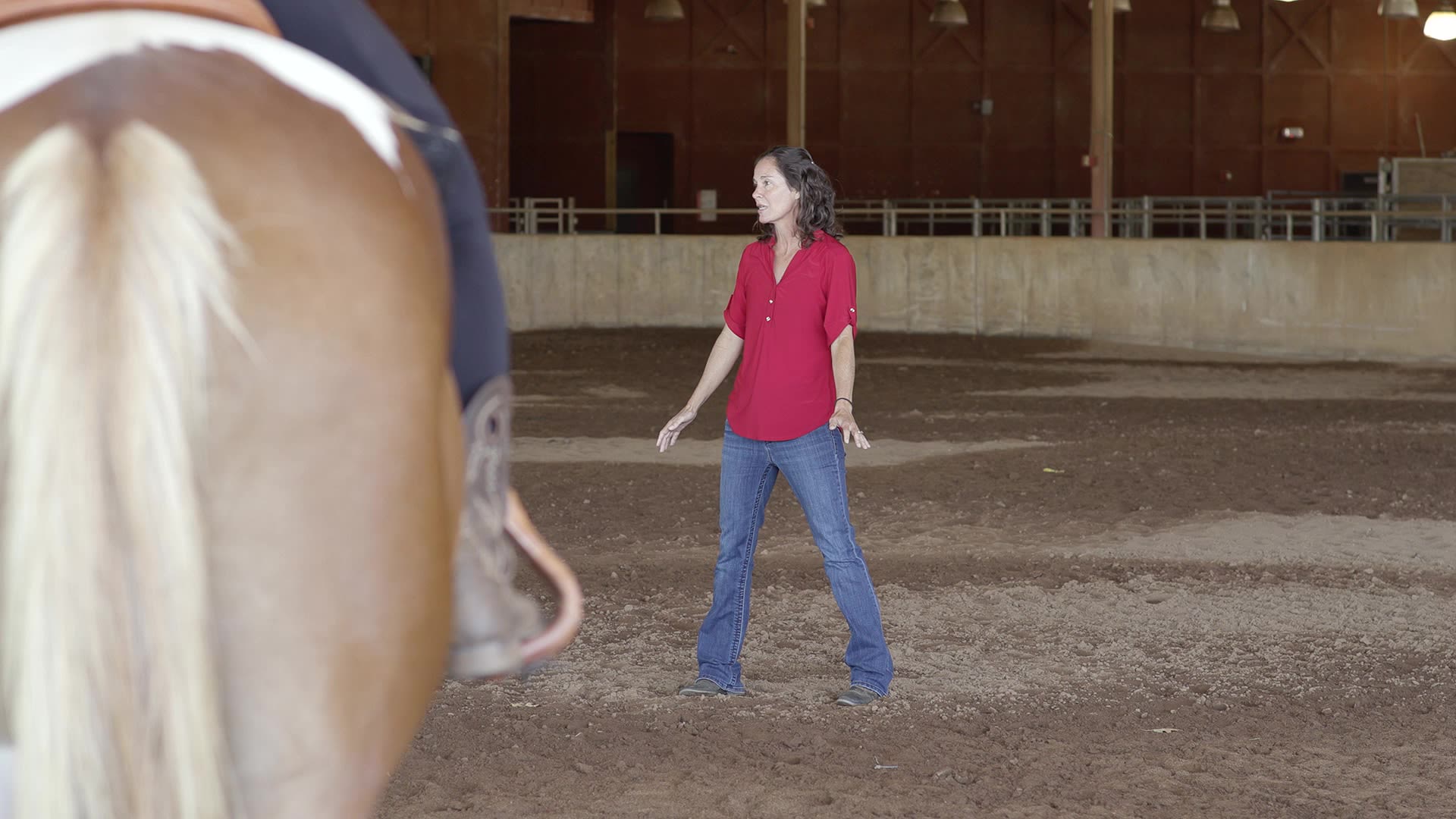
What can you tell us about your career path?
I grew up in Gainesville, Florida, where I attended the University of Florida and majored in animal science for my undergraduate work. I worked in the equine industry for about a year after graduation, riding and competing jumping horses for an amazing farm in New Jersey.
I loved working in New Jersey, and after about a year, I decided that I ultimately wanted to teach in an equine program at the college level. I came back to Florida and pursued a Ph.D. in equine nutrition — I had taken a lot of nutrition classes as an undergraduate and loved that field of study. As I finished my doctorate, I took another job riding horses professionally for about a year and a half.
After graduation, I initially moved to UGA as an assistant coach for the NCAA equestrian team, coaching their equestrian over-fences (jumping) riders. I coached there for about six months before I was hired by the UGA Department of Animal and Dairy Science in an equine lecturer position.
Duberstein leads the College of Agricultural and Environmental Sciences applied equine science curriculum through introductory horse handling and riding courses, as well as an advanced course on horse behavior and training open to students from majors across UGA.
Duberstein leads the College of Agricultural and Environmental Sciences applied equine science curriculum through introductory horse handling and riding courses, as well as an advanced course on horse behavior and training open to students from majors across UGA.
What brought you to CAES?
As I was finishing up my graduate program, I was also riding and competing jumping horses professionally. UGA had two jobs advertised at that time — one was with the equestrian team as an assistant coach, and one was a lecturer in the ADS department. My now-husband was an employee on one of the Clemson experiment stations at that time, and he was planning to transition into a Ph.D. program at Clemson later that year. So the UGA location was ideal for me.
I applied to both jobs and almost immediately — within a week — started working for UGA Athletics in the coaching position. My first day of work was Valentine’s Day, and I finished out that season as a coach before moving to animal and dairy science in the summer as a lecturer in the equine program.
Why did you choose your field?
I grew up on a small horse breeding farm. My dad was the horse specialist for the University of Florida. There is no time in my life where I haven’t been immersed in horses.
I started competing jumping horses in my early teens, and by the time I got to college, I was riding horses at the Grand Prix level, which is very physically demanding of the horse. In my animal science curriculum, I took a nutrition class, and I was just so interested in the interplay between nutrition and athletic performance. I took at least two more animal nutrition classes before I graduated, and I thought that if I ever decided to go back to grad school, nutrition would be what I would study.
What would you most like the public to know about your work?
I work in such a broad role, and I love that I get to do such different things throughout the day. I am primarily a teacher — I teach several classes in our equine science program ranging from science-based classes such as nutrition and anatomy to hands-on classes in our riding/training program. I mentor students in undergraduate research programs daily.
I also have an extension appointment, which means that I interact with the public — the horse industry — to try to provide the equine information they need. In this role, I primarily help with nutrition-related questions and pasture management issues, and I provide educational talks and materials to help people in these areas.
I’ve developed a relationship with veterinarians around the state, and I try to support them when they have issues related to nutrition, forage selection and pasture management. I also lead a biomechanics program in our department — studying the way animals move — and I’ve been able to help with collaborative research in the area of regenerative therapies for stroke and traumatic brain injuries. I love that I get to work with such a varied group of people who allow me to use my skill set to help solve problems that would normally be outside of my knowledge base.
What are you currently working on, and what is the end goal of that project?
I don’t have a formal research appointment so most of what I do is very collaborative. The main focus of my horse research right now is inspired by problems I’ve had managing my own horses.
I am working with a veterinarian at UGA to try to develop safe grazing strategies for horses with metabolic disorders. There is an unfortunately large population of obese horses that are insulin dysregulated (similar, but not quite the same, as Type 2 diabetes in horses). These horses are very prone to developing a crippling hoof condition caused laminitis. One of the triggers for laminitis is access to pasture grass, a standard housing situation in the horse industry. So basically, we have a large population of horses that can’t be turned out on pasture without the risk of developing this horrible condition. It makes these horses very difficult to manage.
Our current research is focused on trying to identify what exactly triggers these laminitic events in pasture environments and developing methods to manage these horses without completely removing them from a pasture grazing situation.
What is your favorite part about what you do?
I love working with people. And getting to work with people around horses all day, well, I can’t think of a job that would be a more perfect fit for me! I mostly appreciate the variety of work that I get to do. Work is never dull for me. I interact with students, other faculty, veterinarians, horse owners, youth in 4-H programs, etc.
On any given day, I might be on a computer looking at data, writing a publication for a scientific journal or a magazine article, or I’m outside working with a group of students and horses in a class setting. I feel like I’m constantly on the go most days, but I like having to keep up that energetic pace. I’m a naturally busy person, so the variety and pace of my job suits my personality well.
If you could do anything else, what would it be?
I worked in the horse industry for several years before moving to an academic job, and I loved that, so I already had another career before this job. But I think the job I’m in fits my strengths better than anything else I can think of.
I’ve watched the emergence of animal-assisted therapy careers such as hippotherapy over the years, and I think that would be an extremely satisfying career too.
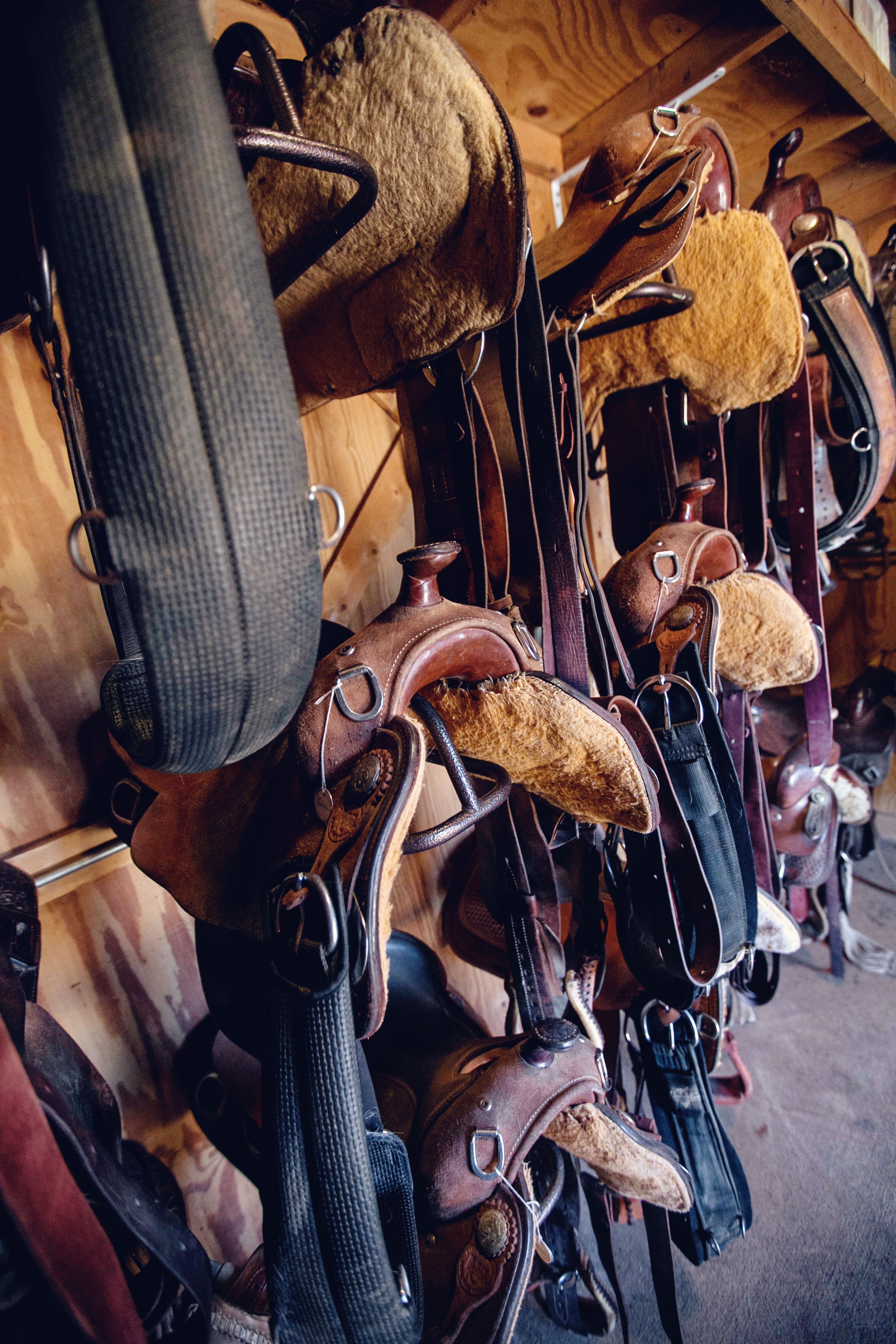
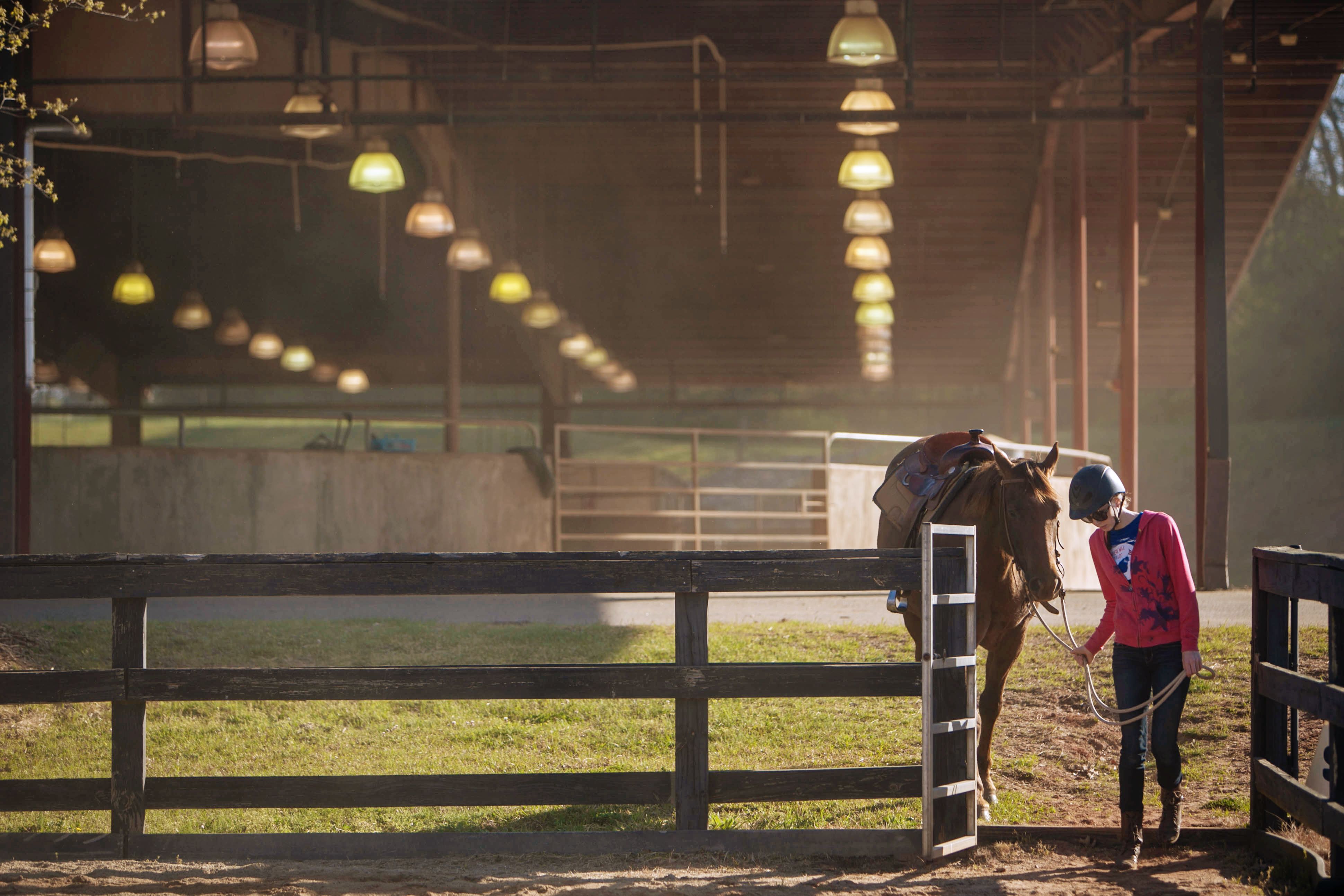
What is your proudest recent accomplishment?
I recently received the D.W. Brooks Excellence in Teaching award from CAES. This award meant a lot to me because I spend so much of my life with students. I remember very clearly what it felt like to be a college student in my early 20s trying to figure out what I wanted to do with my life.
I think it is an overwhelming and stressful time of life for a lot of people because there is such a lot of pressure to figure out your whole life in a few short years. I’m really empathetic with the student population. I feel like the job I am in now allows me to give back to society in a meaningful way by teaching, advising and mentoring students as they try to figure out their life plans. It is an extremely fulfilling job, and I am grateful to be able to do it. The fact that there are prestigious teaching awards, such as the D.W. Brooks Award, I think makes all of us who work in this field feel appreciated.
What is something your colleagues or students may not know about you — hobbies, interests, secret talents?
I think I’m a pretty open book since I usually draw from my life experiences to teach class. My hobbies and interests involve horses — I’m sure that is no surprise!
But outside of horses, my family really likes outdoor adventures like camping and biking. I like to be busy, even on vacation, so we tend to find long bike trails or hiking trails and make those the center of our camping vacations.

